Meet the team
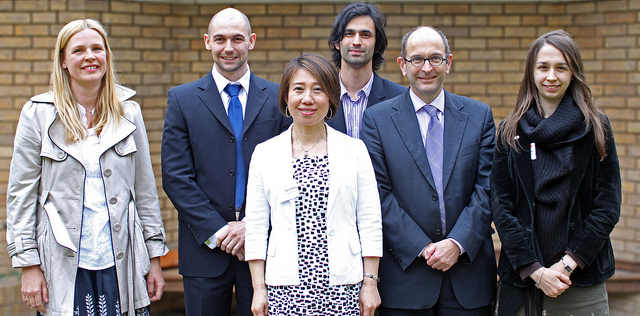 |
| Some of the team at a recent meeting. Left to right: Kate Bowers, Ryan Davenport, Tao Cheng, Leto Peel, Paul Longley and Suzy Moat |
Prof. Tao Cheng
- Professor of Geoinformatics

- Dept of Civil, Environmental & Geomatic Engineering
- Faculty of Engineering Science
Tao Cheng is a Professor in GeoInformatics, director of SpaceTimeLab
and the Course Director of MSc in GIS. She is the Principal Investigator of the Crime, Policing and Citizenship project. She has studied and lectured in China, the Netherlands, Hong Kong, France and the UK. She has broad knowledge and experience in Geographic Information Sciences (GISc), from data acquisition, to information processing, management and analysis, with applications in environmental monitoring, natural resource management, health, transport and crime studies. She has over 140 publications and is a past recipient of the U. V. Helava Award for the best paper in the ISPRS Journal of Photogrammetry and Remote Sensing. She is also a visiting professor at Wuhan University and at the Institute of Remote Sensing Applications, Chinese Academy of Science.
She has been the Departmental Equal Opportunity Liaison Officer (DEOLO) since 2006, and led the departmental successful bid for the Athena SWAN Silver Award in 2009, which recognises and celebrates good employment practice for women working in science, engineering and technology (SET) in higher education and research.
Prof. John Shawe-Taylor
- Professor of Computational Statistics and Machine Learning

- Head of UCL Computer Science
- Dept of Computer Science
- Faculty of Engineering Science
John S Shawe-Taylor is a professor at University College London (UK) where he is the Head of the Department of Computer Science. His main research area is Statistical Learning Theory, but his contributions range from Neural Networks, to Machine Learning, to Graph Theory. He is a co-investigator of the Crime, Policing and Citizenship project.
John Shawe-Taylor obtained a PhD in Mathematics at Royal Holloway, University of London in 1986. He subsequently completed an MSc in the Foundations of Advanced Information Technology at Imperial College. He was promoted to Professor of Computing Science in 1996. He has published over 150 research papers. He moved to the University of Southampton in 2003 to lead the ISIS research group. He has coordinated a number of European wide projects investigating the theory and practice of Machine Learning, including the NeuroCOLT projects. He is currently the scientific coordinator of a Framework VI Network of Excellence in Pattern Analysis, Statistical Modelling and Computational Learning (PASCAL) involving 57 partners. He was previously the Director of the Centre for Computational Statistics and Machine Learning (CSML) at UCL.
Prof. Kate Bowers
- Professor of Crime Science
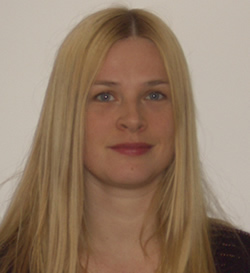
- Dept of Security and Crime Science
- Faculty of Engineering Science
Kate Bowers is a Professor in Crime Science at the UCL Department of Security and Crime Science. She is a co-investigator of the Crime, Policing and Citizenship project. Kate has worked in the field of crime science for almost 20 years, with research interests focusing on the use of quantitative methods in crime analysis and crime prevention. She has published 70 papers and book chapters in criminology and in journals such as Criminology, the Journal of Quantitative Criminology and the Journal of Research in Crime and Delinquency. She has guest edited a special issue of Crime Prevention Studies and co-edited a book on Crime Mapping. She serves on a number of journal editorial boards, and she has number of external appointments such as academic expert for the Crime and Policing Group in the Home Office and expert reviewer for a project run by the US Office of the Assistant Attorney General. Her work has been funded by grants from the Home Office, the US Department of Justice the Police, the Department for Education and Skills, and UK research councils such as the ESRC and AHRC.
Prof. Paul Longley
- Professor of Geographic Information Science

- Dept of Geography
- Faculty of Social and Historical Sciences
Paul Longley (B.Sc., Ph.D., D.Sc., AcSS) is Professor of Geographic Information Science at University College London, UK. He is a co-investigator of the Crime, Policing and Citizenship project. His publications include 14 books and more than 125 refereed journal articles and contributions to edited collections. He has held over 40 research grants and has supervised more than 35 Ph.D. students (most funded by research councils). He is a co-editor of the journal Environment and Planning B and a member of five other editorial boards. He has held ten externally-funded visiting appointments and given over 150 conference presentations and external seminars. He teaches Geographic Information Systems and Science and is a co-author of the best-selling book of that name.
Dr. Ryan Davenport
- Research Associate
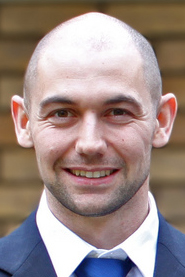
- Dept of Civil, Environmental & Geomatic Engineering
- Faculty of Engineering Science
Ryan joined UCL Civil, Environmental and Geomatic Engineering in June 2012 after working as a Research Fellow at the University of Sheffield.
His qualifications include; BA (Hons) History and Criminology, Sheffield Hallam University 2005; MA International Criminology, The University of Sheffield 2006; Ph.D. Criminology, The University of Sheffield 2010.
Ryan’s doctoral thesis involved a secondary analysis of the British Crime Survey (BCS) that investigated the nature, extent and concentration of incivilities (antisocial behaviour / ASB) across England and Wales. A principal aim of the thesis was to incorporate incivilities into the wider field of repeat victimization. Subsequent statistical modelling also noted the importance of a measure of `collective efficacy´, the complex relationship between observed and perceived disorder and their impact on criminal victimization (a variant of the `broken windows´ hypothesis); quality of life measures and fear of crime. Ryan suggests that incivilities, far from being trivial, appear to have a greater impact on local social order than crime.
Ryan has also previously worked for the Sheffield Hallam University, Centre for Law, Criminology and Criminal Justice providing dissertation supervision to students on the MA International Criminal Justice. Ryan continues to maintain working relations with the Hallam Centre for Community Justice.
Dr. Suzy Moat
- Research Associate
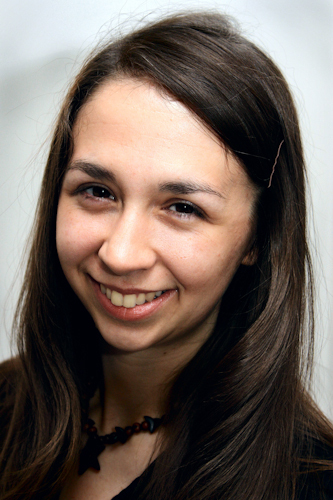
- Dept of Civil, Environmental & Geomatic Engineering
- Faculty of Engineering Science
Suzy Moat is a Research Associate in the Department of Civil, Environmental and Geomatic Engineering at UCL. Suzy’s research
focuses on how information flows between people, and links between this information flow and individual and collective behaviour. Her work has covered experimental and computational investigations of language mechanisms in individuals, and large-scale studies of online communication and how this relates to real life economic behaviour. Following undergraduate studies in Computer Science at UCL, where she was awarded the Faculty of Engineering Medal and Computing Magazine Runner-up Student Project of the Year, she undertook postgraduate studies in Cognitive Science at the University of Edinburgh. Working with Prof. Steven Bishop, she coordinated a funding bid to support the development of computational social science and big data research in Europe, which was awarded 1.9 million Euros by the European Commission. Suzy has held research positions in the UK, Germany, Switzerland, Belgium and the USA, and her work has been covered by press in over 15 countries.
Leto Peel
- Research Associate
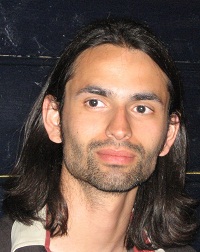
- Dept of Computer Science
- Faculty of Engineering Science
Leto Peel is currently a Research Associate on the Crime, Policing and Citizenship project. Prior to joining the project, he worked for 5 years as a Research Scientist at the BAE Systems Advanced Technology Centre in Bristol. During his time there he worked on and led a range of machine learning industrial research projects in Security and Surveillance (detection of abnormal behaviour) and Integrated Vehicle Health Management (prognosis/diagnosis of faults, prediction of critical events). Since 2009 he has been undertaking an Engineering Doctorate at the Eng.D. VEIV Centre at UCL focusing on machine learning algorithms that learn from structural link patterns (rather than attribute value information) in relational/network data.
Industrial partner: Metropolitan Police Service
Founded by Sir Robert Peel in 1829, the original establishment of 1,000 officers policed a seven-mile radius from Charing Cross and a population of less than 2 million.
Today, the Metropolitan Police Service employs more than 31,000 officers together with about 13,000 police staff and 3,700 Police Community Support Officers (PCSOs). The MPS is also being supported by 2,500 volunteer police cadets and more than 5,000 volunteer police officers from the Metropolitan Special Constabulary (MSC) and its Employer Supported Policing (ESP) programme. The Metropolitan Police Services covers an area of 620 square miles and a population of 7.2 million.
